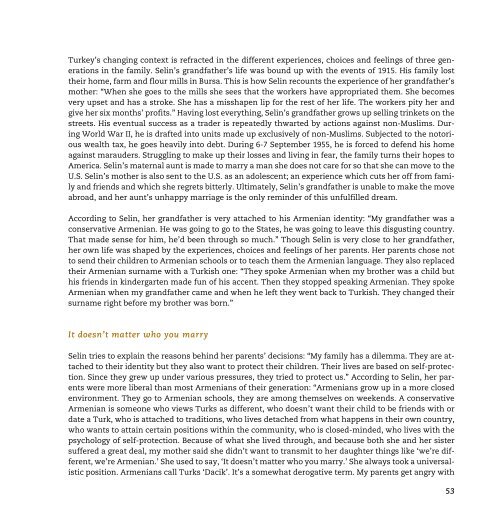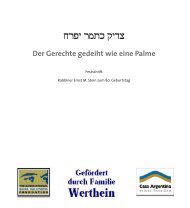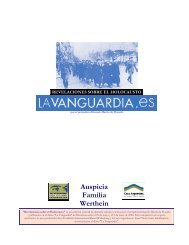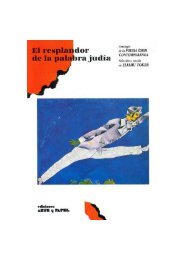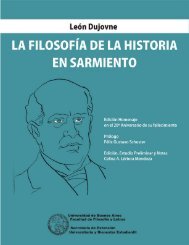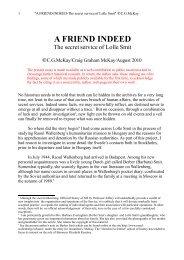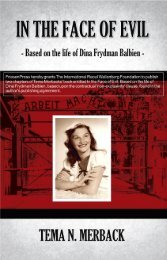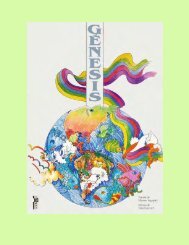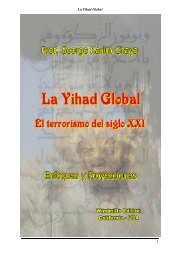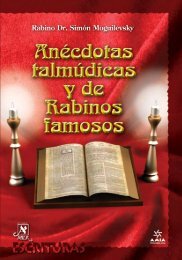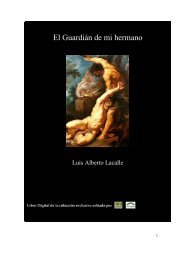Speaking to One Another - The International Raoul Wallenberg ...
Speaking to One Another - The International Raoul Wallenberg ...
Speaking to One Another - The International Raoul Wallenberg ...
- No tags were found...
You also want an ePaper? Increase the reach of your titles
YUMPU automatically turns print PDFs into web optimized ePapers that Google loves.
Turkey’s changing context is refracted in the different experiences, choices and feelings of three generationsin the family. Selin’s grandfather’s life was bound up with the events of 1915. His family losttheir home, farm and flour mills in Bursa. This is how Selin recounts the experience of her grandfather’smother: “When she goes <strong>to</strong> the mills she sees that the workers have appropriated them. She becomesvery upset and has a stroke. She has a misshapen lip for the rest of her life. <strong>The</strong> workers pity her andgive her six months’ profits.” Having lost everything, Selin’s grandfather grows up selling trinkets on thestreets. His eventual success as a trader is repeatedly thwarted by actions against non-Muslims. DuringWorld War II, he is drafted in<strong>to</strong> units made up exclusively of non-Muslims. Subjected <strong>to</strong> the no<strong>to</strong>riouswealth tax, he goes heavily in<strong>to</strong> debt. During 6-7 September 1955, he is forced <strong>to</strong> defend his homeagainst marauders. Struggling <strong>to</strong> make up their losses and living in fear, the family turns their hopes <strong>to</strong>America. Selin’s maternal aunt is made <strong>to</strong> marry a man she does not care for so that she can move <strong>to</strong> theU.S. Selin’s mother is also sent <strong>to</strong> the U.S. as an adolescent; an experience which cuts her off from familyand friends and which she regrets bitterly. Ultimately, Selin’s grandfather is unable <strong>to</strong> make the moveabroad, and her aunt’s unhappy marriage is the only reminder of this unfulfilled dream.According <strong>to</strong> Selin, her grandfather is very attached <strong>to</strong> his Armenian identity: “My grandfather was aconservative Armenian. He was going <strong>to</strong> go <strong>to</strong> the States, he was going <strong>to</strong> leave this disgusting country.That made sense for him, he’d been through so much.” Though Selin is very close <strong>to</strong> her grandfather,her own life was shaped by the experiences, choices and feelings of her parents. Her parents chose not<strong>to</strong> send their children <strong>to</strong> Armenian schools or <strong>to</strong> teach them the Armenian language. <strong>The</strong>y also replacedtheir Armenian surname with a Turkish one: “<strong>The</strong>y spoke Armenian when my brother was a child buthis friends in kindergarten made fun of his accent. <strong>The</strong>n they s<strong>to</strong>pped speaking Armenian. <strong>The</strong>y spokeArmenian when my grandfather came and when he left they went back <strong>to</strong> Turkish. <strong>The</strong>y changed theirsurname right before my brother was born.”It doesn’t matter who you marrySelin tries <strong>to</strong> explain the reasons behind her parents’ decisions: “My family has a dilemma. <strong>The</strong>y are attached<strong>to</strong> their identity but they also want <strong>to</strong> protect their children. <strong>The</strong>ir lives are based on self-protection.Since they grew up under various pressures, they tried <strong>to</strong> protect us.” According <strong>to</strong> Selin, her parentswere more liberal than most Armenians of their generation: “Armenians grow up in a more closedenvironment. <strong>The</strong>y go <strong>to</strong> Armenian schools, they are among themselves on weekends. A conservativeArmenian is someone who views Turks as different, who doesn’t want their child <strong>to</strong> be friends with ordate a Turk, who is attached <strong>to</strong> traditions, who lives detached from what happens in their own country,who wants <strong>to</strong> attain certain positions within the community, who is closed-minded, who lives with thepsychology of self-protection. Because of what she lived through, and because both she and her sistersuffered a great deal, my mother said she didn’t want <strong>to</strong> transmit <strong>to</strong> her daughter things like ‘we’re different,we’re Armenian.’ She used <strong>to</strong> say, ‘It doesn’t matter who you marry.’ She always <strong>to</strong>ok a universalisticposition. Armenians call Turks ‘Dacik’. It’s a somewhat derogative term. My parents get angry with53


